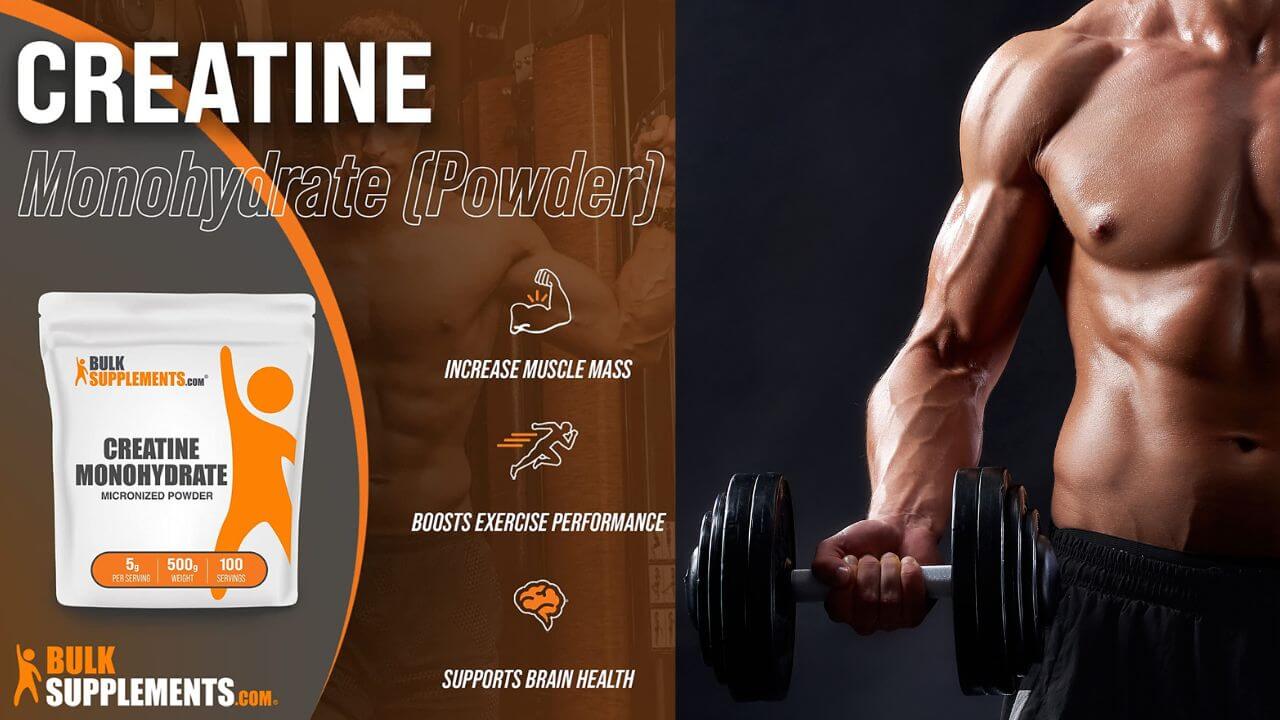Creatine Supplementation.
If you're into fitness and looking to boost your performance, you've probably heard of creatine. But with so many options available, it can be confusing to figure out which one is the best for you.
Many gym-goers struggle with deciding between Creatine HCL and Creatine Monohydrate. It's frustrating to not have a clear answer on which one will provide the maximum benefits.
That's where we come in. Our scientifically formulated Creatine HCL offers superior solubility and absorption, giving you enhanced performance and results.
Say goodbye to the bloating and loading phases. Choose Creatine HCL and take your fitness journey to the next level.
Key Takeaways:
- Creatine Monohydrate: The traditional powerhouse in the world of creatine supplements. It has been extensively researched and proven effective in enhancing strength, power, and muscle mass.
- Creatine HCL: The newer, more efficient option that offers improved solubility and potentially better absorption. It may cause less bloating and water retention compared to Creatine Monohydrate.
- Which is better for you? Making an informed choice depends on your individual goals, preferences, and tolerance. While Creatine Monohydrate has a solid track record and is more cost-effective, Creatine HCL may be worth considering if you experience digestive issues or prefer a more concentrated form.
The production of creatine by the body necessitates the presence of three specific amino acids—methionine, glycine, and arginine—as well as two key enzymes.
Introduction: Understanding the Basics of Creatine
Creatine is a widely used supplement among athletes and fitness enthusiasts due to its potential benefits in enhancing performance and muscle development. By understanding the basics of creatine, individuals can make informed decisions about its usage and choose the most suitable form for their needs.
- Creatine is a naturally occurring compound in the body that plays a crucial role in energy production during high-intensity exercises.
- Supplementing with creatine can increase the body's creatine stores, allowing for greater energy production and improved physical performance.
- Creatine is available in various forms, including creatine HCL and monohydrate, each with its own set of characteristics and potential benefits.
- Creatine HCL is a form of creatine that is highly soluble, making it easier to be absorbed by the body. It is known for causing less water retention and stomach discomfort compared to other forms.
- Creatine monohydrate is the most common and well-researched form of creatine. It is cost-effective, and studies have shown its effectiveness in improving strength, power, and muscle mass.
- Ultimately, choosing between creatine HCL and monohydrate depends on individual preferences, tolerability, and desired outcomes.
When deciding which form of creatine to use, it's important to consider factors such as solubility, absorption, potential side effects, and personal goals.
Additionally, consulting with a healthcare professional or a sports nutritionist can provide valuable guidance in determining the most appropriate form and dosage of creatine for optimal results.
Remember that consistency in usage and adherence to recommended dosages are key to experiencing the full benefits of creatine supplementation.

Creatine Monohydrate: The Traditional Powerhouse
In a world where performance enhancement is highly sought after, Creatine Monohydrate has long stood as a reliable and potent option.
This powerhouse supplement has been trusted by athletes and fitness enthusiasts alike for its remarkable benefits.
Here are five key points to consider regarding Creatine Monohydrate: The Traditional Powerhouse:
- 1. Enhanced Strength: Creatine Monohydrate has been shown to significantly increase muscle strength, allowing individuals to push their physical limits during training sessions.
- 2. Improved Endurance: By replenishing ATP stores, Creatine Monohydrate helps delay fatigue, enabling athletes to perform at their best for longer periods of time.
- 3. Increased Muscle Mass: Regular consumption of Creatine Monohydrate has been associated with greater gains in lean muscle mass, contributing to a more sculpted physique.
- 4. Faster Muscle Recovery: This supplement plays a crucial role in muscle cell hydration, promoting faster recovery and reducing post-workout soreness.
- 5. Cognitive Benefits: Beyond its physical advantages, Creatine Monohydrate has also been linked to improved cognitive function, including enhanced memory and attention span.
It is worth noting that Creatine Monohydrate boasts a long-standing reputation for its effectiveness, backed by numerous scientific studies. This traditional powerhouse remains a go-to option for those seeking to optimize their athletic performance and physical fitness.
A Pro Tip: To maximize the benefits of Creatine Monohydrate, make sure to follow proper dosage guidelines and consult with a healthcare professional or sports nutritionist.

Creatine HCL: The Newer, More Efficient Option
Creatine HCL: The Latest Effective Alternative
Creatine Hydrochloride is a highly bioavailable form of creatine, formed by bonding creatine with hydrochloric acid
Creatine HCL offers a modern and improved option for individuals seeking enhanced performance. With its advanced formulation, this new variation delivers optimal results for athletes and fitness enthusiasts.
It stands apart from its counterparts due to its improved efficacy and effectiveness, providing a superior option for those looking to enhance their physical performance.
In comparison to other forms of creatine, Creatine HCL offers several advantages that make it a valuable choice. This superior alternative ensures faster absorption into the muscles, resulting in better gains in strength and power.
Consequently, users experience fewer digestive discomforts commonly associated with other creatine supplements. Its concentrated form allows for smaller serving sizes, making it easier to consume without compromising its performance-enhancing effects.
One notable detail about Creatine HCL is its ability to promote lean muscle mass growth while minimizing water retention. This makes it a preferred choice for athletes requiring performance improvements without unwanted weight gain or bloating.
With its notable benefits, Creatine HCL presents a highly efficient and practical option for individuals aiming to maximize their physical potential.
To make the most of Creatine HCL, it is advisable to follow a few helpful suggestions. Firstly, individuals should consult with a healthcare professional or a qualified trainer to determine the appropriate dosage for their specific needs.
Secondly, maintaining consistent supplementation is crucial for optimal results. Lastly, combining Creatine HCL with a healthy diet and regular exercise routine can further enhance its benefits, enabling individuals to reach their fitness goals more effectively.
By opting for Creatine HCL, individuals can unlock its superior advantages and elevate their athletic performance to new heights. With its advanced formulation and improved absorption, this innovative option is a game-changer for those looking to maximize their physical potential.

Which is Best for You? Making an Informed Choice
When deciding between Creatine HCL and Monohydrate, it is essential to understand which option is better for you. Both forms of creatine have their benefits and considerations.
Creatine HCL is known for its superior solubility in water, which can enhance absorption by the muscles. On the other hand, Monohydrate has been extensively studied and established as a safe and effective choice for many individuals.
Additionally, Creatine HCL requires a smaller dosage due to its increased potency, while Monohydrate may require larger serving sizes. Ultimately, the decision rests on personal preference and desired outcomes.
It is advisable to consult with a healthcare professional or a sports nutritionist who can provide personalized recommendations based on your specific needs.
Conclusion: Maximizing Your Performance with Creatine
Using creatine effectively to enhance your performance can lead to optimal results. By understanding the differences between creatine HCL and monohydrate, you can make an informed decision.
Both types have benefits, but the unique features of creatine HCL, such as its solubility and potential for better absorption, make it an attractive option for maximizing performance.
However, it is important to note that individual responses may vary. By consulting with a healthcare professional or a fitness expert, you can determine the best form of creatine for your specific needs.
Remember, to optimize your performance with creatine, consistency in dosage and timing is key.
Five Facts About Creatine HCL vs. Monohydrate
- ✅ Creatine monohydrate is typically made with a creatine molecule and a water molecule, while creatine HCL is made up of a creatine molecule with hydrochloride attached.
- ✅ Creatine monohydrate works best when a person incorporates a loading phase into their routine, while creatine HCL does not require a loading phase due to its increased stability.
- ✅ Creatine monohydrate requires a larger dose compared to creatine HCL to see the same results in terms of muscle growth, strength gains, and lean mass gains.
- ✅ Creatine monohydrate has been extensively studied for much longer than creatine HCL, making it more well-established and researched.
- ✅ Both creatine monohydrate and creatine HCL offer benefits such as increased muscle strength, short energy bursts, muscle recovery, and improvements in body composition. The choice between the two types depends on individual goals and preferences.

FAQs About Creatine Hcl Vs Monohydrate, Which Is Better?
What is creatine, and how does it relate to muscle-building and energy bursts?
Creatine is an amino acid that supports muscle strength, short energy bursts, muscle recovery, and improvements in body composition. It is made in the body starting in the kidneys and completing in the liver.
Creatine is best known for its ability to increase muscle mass, aid in short energy bursts, and help the muscles recover efficiently post-workout.
What are the differences between creatine hydrochloride (HCL) and creatine monohydrate?
The main differences between creatine HCL and creatine monohydrate exist at a molecular level.
Creatine monohydrate is typically made with a creatine molecule and a water molecule, allowing it to quickly increase muscle size.
Creatine HCL, on the other hand, is made up of a creatine molecule with hydrochloride attached, enhancing water solubility and absorption.
How do creatine monohydrate supplements and creatine HCL supplements differ in terms of absorption and utilization by the body?
Creatine monohydrate supplements require a loading phase, where a person takes 20-25 grams of creatine monohydrate every day for 5-7 days to saturate their muscle cells and experience its benefits.
Creatine HCL, due to its increased solubility, can be taken in smaller doses with similar results. The attached hydrochloride in creatine HCL also makes the molecule more stable, reducing the need for a loading phase.
Which type of creatine supplement is better for muscle growth, strength gains, and lean mass gains?
Both creatine HCL and creatine monohydrate can support muscle protein synthesis, muscle growth, strength gains, and lean mass gains.
However, creatine monohydrate has been extensively studied and is recommended for athletes of all types.
While creatine HCL may work faster and require smaller doses, it hasn't been studied as thoroughly as creatine monohydrate.
How does creatine contribute to energy production in muscle cells?
Creatine enhances energy production in muscle cells by replenishing adenosine triphosphate (ATP), which is the basic form of energy used by cells.
During exercise, ATP depletes quickly, but creatine helps replenish it. By supplementing with creatine, you can provide your muscle cells with more ATP, leading to increased energy for exercise and recovery.
Is it safe to take creatine supplements, and who can benefit from them?
Taking creatine supplements, whether it's creatine HCL or creatine monohydrate, is generally considered safe when used as directed.
It is beneficial for individuals who work out regularly and are looking to enhance their muscle strength, power, and overall performance.
Creatine monohydrate supplementation, in particular, has various benefits and supports different fitness goals for athletes of all levels.






